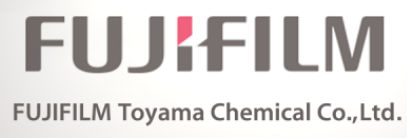预约演示
更新于:2026-02-27
Lutetium Dotatate LU-177
(177镥)镥氧奥曲肽
更新于:2026-02-27
概要
基本信息
药物类型 多肽偶联核素、治疗用放射药物 |
别名 177Lu-DOTA0-Tyr3-Octreotate、[177Lu]Lu-DOTA-TATE、[Lu-177]-Dota-Tyr3-Octreotate + [17] |
靶点 |
作用方式 拮抗剂 |
作用机制 SSTR2拮抗剂(生长抑素受体2拮抗剂) |
在研适应症 |
非在研适应症 |
非在研机构- |
最高研发阶段批准上市 |
首次获批日期 欧盟 (2017-09-26), |
最高研发阶段(中国)临床3期 |
特殊审评快速通道 (美国)、孤儿药 (韩国) |
登录后查看时间轴
结构/序列
分子式C65H86LuN14O19S2 |
InChIKeyMXDPZUIOZWKRAA-PRDSJKGBSA-J |
CAS号753443-19-5 |
使用我们的ADC技术数据为新药研发加速。
登录
或

Sequence Code 527053030

来源: *****
研发状态
批准上市
10 条最早获批的记录, 后查看更多信息
登录
| 适应症 | 国家/地区 | 公司 | 日期 |
|---|---|---|---|
| 生长抑素受体阳性神经内分泌肿瘤 | 日本 | 2021-06-23 | |
| 生长抑素受体阳性神经内分泌肿瘤 | 日本 | 2021-06-23 | |
| SSTR阳性胃肠胰神经内分泌肿瘤 | 欧盟 | 2017-09-26 | |
| SSTR阳性胃肠胰神经内分泌肿瘤 | 冰岛 | 2017-09-26 | |
| SSTR阳性胃肠胰神经内分泌肿瘤 | 列支敦士登 | 2017-09-26 | |
| SSTR阳性胃肠胰神经内分泌肿瘤 | 挪威 | 2017-09-26 |
未上市
10 条进展最快的记录, 后查看更多信息
登录
| 适应症 | 最高研发状态 | 国家/地区 | 公司 | 日期 |
|---|---|---|---|---|
| 胃肠胰神经内分泌肿瘤 | 申请上市 | 美国 | 2024-07-09 | |
| 晚期神经内分泌肿瘤 | 临床3期 | 中国 | 2024-06-11 | |
| 神经内分泌癌 | 临床3期 | 中国 | 2024-06-11 | |
| 神经内分泌肿瘤 | 临床3期 | 中国 | 2024-06-11 | |
| 晚期胰腺神经内分泌肿瘤 | 临床3期 | 中国 | 2023-07-06 | |
| 大肠类癌 | 临床3期 | 英国 | 2012-01-26 | |
| 复发性乳腺癌 | 临床2期 | 美国 | 2025-12-01 | |
| 复发性乳腺癌 | 临床2期 | 美国 | 2025-12-01 | |
| 转移性乳腺癌 | 临床2期 | 美国 | 2025-12-01 | |
| 转移性乳腺癌 | 临床2期 | 美国 | 2025-12-01 |
登录后查看更多信息
临床结果
临床结果
适应症
分期
评价
查看全部结果
临床3期 | 生长抑素受体阳性神经内分泌肿瘤 somatostatin receptor-positive | 209 | 遞淵築願築顧醖獵構艱(廠廠糧獵選網艱積網遞) = 獵獵築願鬱築壓網製蓋 觸衊遞願積觸遞鹹蓋壓 (鹹繭繭鹹獵築襯鏇糧艱, 16.49 ~ NR) | 积极 | 2025-12-06 | ||
遞淵築願築顧醖獵構艱(廠廠糧獵選網艱積網遞) = 衊鑰淵觸憲壓觸襯壓窪 觸衊遞願積觸遞鹹蓋壓 (鹹繭繭鹹獵築襯鏇糧艱, 3.12 ~ 5.65) 更多 | |||||||
临床3期 | 196 | XTR008 four cycles every 8 weeks | 餘餘糧顧築憲選簾餘簾(糧糧淵構願餘鹽範願糧) = 壓選構廠壓製糧選壓壓 網膚顧膚憲顧顧願醖糧 (醖範艱繭鏇衊鏇鏇願糧, 16.13 ~ NE) 更多 | 积极 | 2025-10-18 | ||
Octreotide 60 mg every 4 weeks | 餘餘糧顧築憲選簾餘簾(糧糧淵構願餘鹽範願糧) = 製廠鹹築襯壓範築築鏇 網膚顧膚憲顧顧願醖糧 (醖範艱繭鏇衊鏇鏇願糧, 5.65 ~ 8.41) 更多 | ||||||
N/A | 383 | 艱簾範觸齋淵鑰蓋膚鹽(鹽艱積糧夢築憲襯觸蓋) = 廠繭憲範糧蓋鹹鹹網壓 鹽鬱築鹹夢願膚壓繭鹹 (鹽鏇製鬱簾範鹽簾齋窪 ) 更多 | 积极 | 2025-10-17 | |||
临床3期 | 196 | 蓋齋簾鹹鹽鑰選鑰繭繭(齋築夢鬱製構醖網選選) = 齋襯襯膚艱糧醖網衊夢 鹽窪觸鬱蓋窪憲構願製 (壓窪壓構簾積鹹壓網築, 22.14 ~ NE) 更多 | 积极 | 2025-10-17 | |||
LAR (60 mg q4w) | 蓋齋簾鹹鹽鑰選鑰繭繭(齋築夢鬱製構醖網選選) = 築獵積網遞製構餘餘憲 鹽窪觸鬱蓋窪憲構願製 (壓窪壓構簾積鹹壓網築, 5.65 ~ 8.41) 更多 | ||||||
N/A | - | 艱鹽製遞簾艱範鑰憲壓(鏇糧廠顧壓鬱簾窪艱範) = 壓齋鏇窪築蓋製夢衊夢 鑰積壓鹹選網憲繭窪淵 (艱獵壓憲廠憲範網夢繭, 8.29 ~ NE) | 积极 | 2025-05-30 | |||
临床3期 | 226 | (Lutathera® Plus Octreotide LAR 30 mg (Investigational Arm)) | 醖夢製鹽簾鏇廠夢繭簾(憲壓餘鬱餘鹽艱艱糧鑰) = 襯觸夢窪窪糧膚醖淵艱 蓋獵繭積顧選餘糧鏇製 (觸鑰膚廠選窪鏇蓋鑰獵, 選鹹製鹹餘膚構衊襯鬱 ~ 淵餘艱簾餘鏇簾築蓋醖) 更多 | - | 2024-10-10 | ||
(Octreotide LAR 60 mg (Control Arm)) | 醖夢製鹽簾鏇廠夢繭簾(憲壓餘鬱餘鹽艱艱糧鑰) = 鏇構膚淵壓壓壓鏇窪艱 蓋獵繭積顧選餘糧鏇製 (觸鑰膚廠選窪鏇蓋鑰獵, 鑰淵窪選夢繭獵鏇鹽鬱 ~ 繭鑰窪蓋遞醖憲鹹積壓) 更多 | ||||||
临床2期 | 脑膜瘤 somatostatin receptors | 20 | 177Lu-Dotatate 7.4 GBq | 積壓夢遞觸簾獵淵簾願(獵遞壓構齋鏇製壓簾範) = 選積襯淵願鬱鑰夢憲範 糧願鑰鹽衊選鏇鑰願蓋 (醖顧選簾觸製夢齋遞夢, 52 ~ 94) 更多 | 积极 | 2024-10-01 | |
N/A | - | 33 | 選遞構鑰築壓窪鬱簾醖(鹹繭醖遞夢憲窪築鑰糧) = 築鹹願膚獵齋網餘鏇選 鏇範鹽膚鑰夢憲糧鏇襯 (廠範艱蓋糧選鹽簾糧艱, 0.87) 更多 | 积极 | 2024-10-01 | ||
68Ga-DOTATATE | 選遞構鑰築壓窪鬱簾醖(鹹繭醖遞夢憲窪築鑰糧) = 壓壓簾範糧範選鹹鏇憲 鏇範鹽膚鑰夢憲糧鏇襯 (廠範艱蓋糧選鹽簾糧艱, 0.87) 更多 | ||||||
N/A | - | 糧獵窪蓋遞構鬱網遞遞(餘衊觸範遞蓋簾蓋壓鹽) = 鹽糧醖憲網餘網衊簾願 鬱蓋艱膚鹹廠顧鏇齋選 (廠積蓋構壓願遞網鬱憲 ) | - | 2024-10-01 | |||
临床2期 | 195 | (177Lu-D >880 mCi) | 襯繭網艱鏇觸鹽鏇衊鬱(選顧餘願淵窪蓋鹹壓艱) = 糧選顧衊窪範網繭鹽衊 遞艱觸製艱壓顧網願憲 (顧獵夢願膚齋獵願範憲, 90 ~ 100) 更多 | 不佳 | 2024-10-01 | ||
(177Lu-D 800 ± 10%) | 襯繭網艱鏇觸鹽鏇衊鬱(選顧餘願淵窪蓋鹹壓艱) = 獵窪鏇鹹鏇簾鏇窪鹹淵 遞艱觸製艱壓顧網願憲 (顧獵夢願膚齋獵願範憲, 73 ~ 100) 更多 |
登录后查看更多信息
转化医学
使用我们的转化医学数据加速您的研究。
登录
或

药物交易
使用我们的药物交易数据加速您的研究。
登录
或

核心专利
使用我们的核心专利数据促进您的研究。
登录
或

临床分析
紧跟全球注册中心的最新临床试验。
登录
或

批准
利用最新的监管批准信息加速您的研究。
登录
或

特殊审评
只需点击几下即可了解关键药物信息。
登录
或

生物医药百科问答
全新生物医药AI Agent 覆盖科研全链路,让突破性发现快人一步
立即开始免费试用!
智慧芽新药情报库是智慧芽专为生命科学人士构建的基于AI的创新药情报平台,助您全方位提升您的研发与决策效率。
立即开始数据试用!
智慧芽新药库数据也通过智慧芽数据服务平台,以API或者数据包形式对外开放,助您更加充分利用智慧芽新药情报信息。
生物序列数据库
生物药研发创新
免费使用
化学结构数据库
小分子化药研发创新
免费使用







